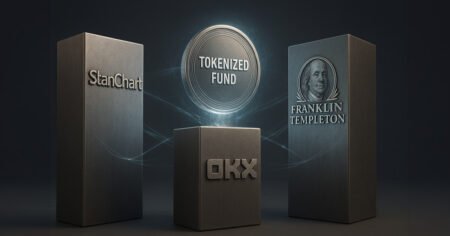The Securities and Exchange Commission (SEC) acting chairman, Mark Uyeda, has suggested the creation of a conditional regulatory sandbox for blockchain-based securities trading. This proposal was made during the SEC Crypto Task Force’s second roundtable on April 11, focusing on crypto trading platforms. Uyeda recommended a time-limited, conditional exemptive relief framework to support innovation while still maintaining regulatory oversight. This framework would allow both registrants and non-registrants to explore blockchain-based trading solutions without full regulatory approval, as long as they comply with defined conditions.
Uyeda acknowledged that the first digital asset trading platforms operated outside federal jurisdiction, under state-level regulation via money transmitter licenses. This resulted in a complicated regulatory landscape, with platforms needing numerous licenses to operate nationally. Uyeda proposed an accommodating federal regulatory framework to streamline compliance for entities offering trading in both tokenized securities and non-security digital assets. However, existing federal securities laws present barriers to integrating blockchain-based systems into traditional securities markets, impacting broker-dealers and national securities exchanges.
Most tokenized securities remain unregistered, making them ineligible for listing on national exchanges. Additionally, the differences between traditional and crypto trading platforms pose further challenges. While traditional exchanges separate custody, execution, and clearing functions, most crypto platforms are vertically integrated entities combining these roles. Uyeda highlighted that federal securities laws did not anticipate technologies like blockchain or smart contracts performing roles typically reserved for transfer agents or clearinghouses, presenting further complications.
Despite these challenges, Uyeda recognized the operational benefits of distributed ledger technology, such as blockchain. He emphasized blockchain’s potential for real-time collateral management, increased capital efficiency, and continuous trading via decentralized protocols. These features could offer execution and clearing advantages not present in legacy systems. Uyeda encouraged market participants to provide input on where and how exemptive relief could be most effectively implemented, facilitating innovation in blockchain-based securities trading.
In conclusion, SEC acting chairman Mark Uyeda’s proposal for a conditional regulatory sandbox for blockchain-based securities trading aims to foster innovation while maintaining regulatory oversight. The proposed framework would allow individuals and entities to explore blockchain-based trading solutions without full regulatory approval, as long as they adhere to defined conditions. Uyeda also highlighted the need for an accommodating federal regulatory framework to streamline compliance for platforms offering trading in tokenized securities and non-security digital assets. Despite the challenges posed by current federal securities laws, the operational benefits of blockchain technology in securities trading cannot be ignored. As the industry continues to evolve, it is essential for regulators and market participants to collaborate in facilitating the integration of blockchain technology into traditional securities markets.

















